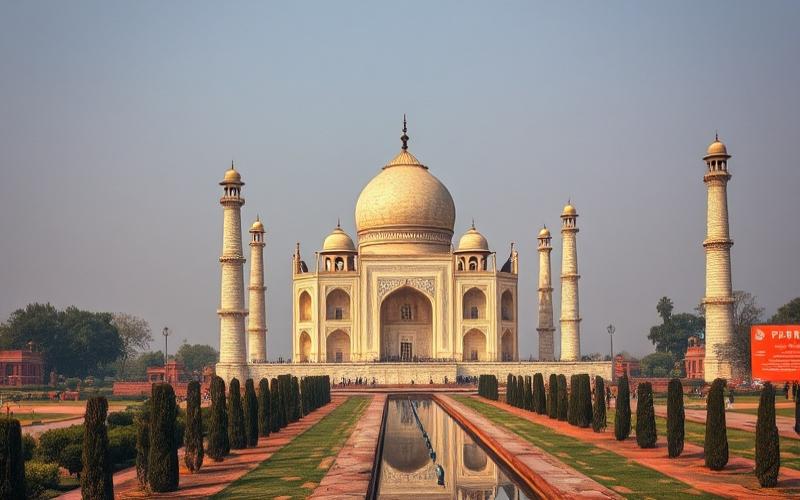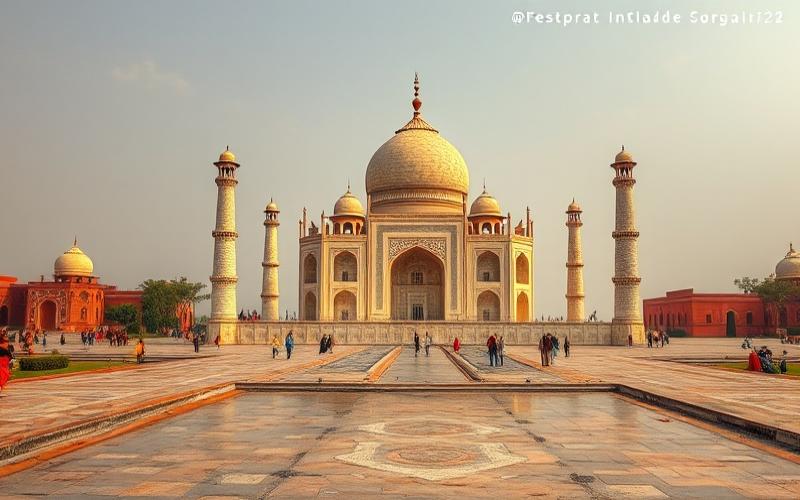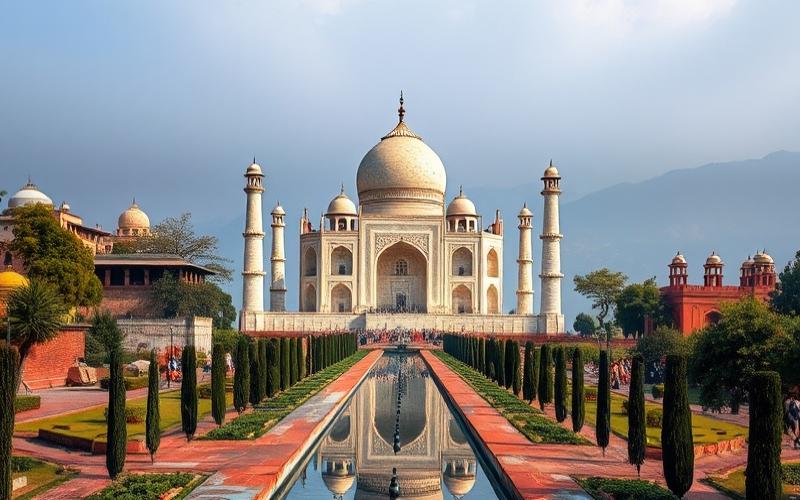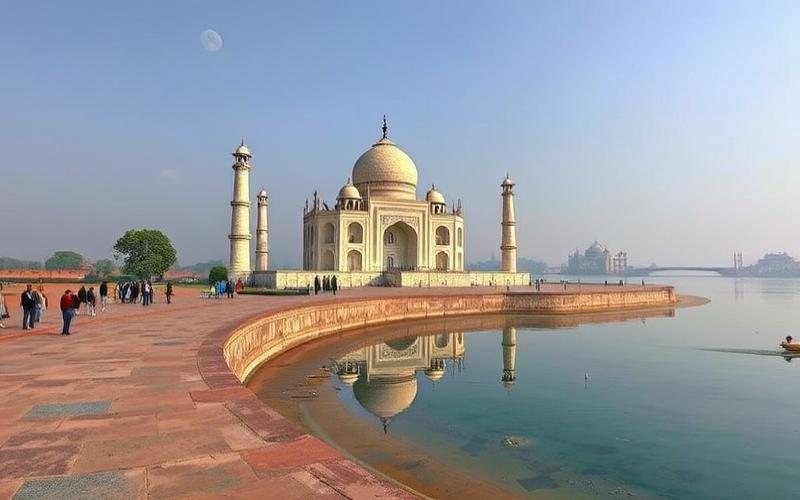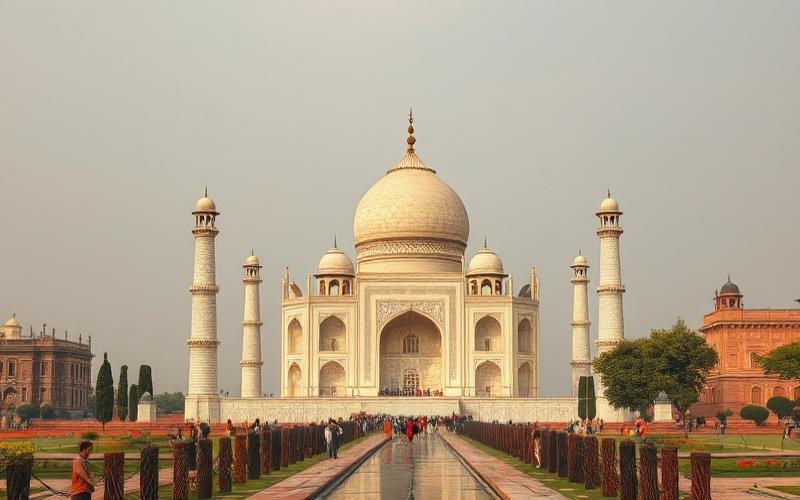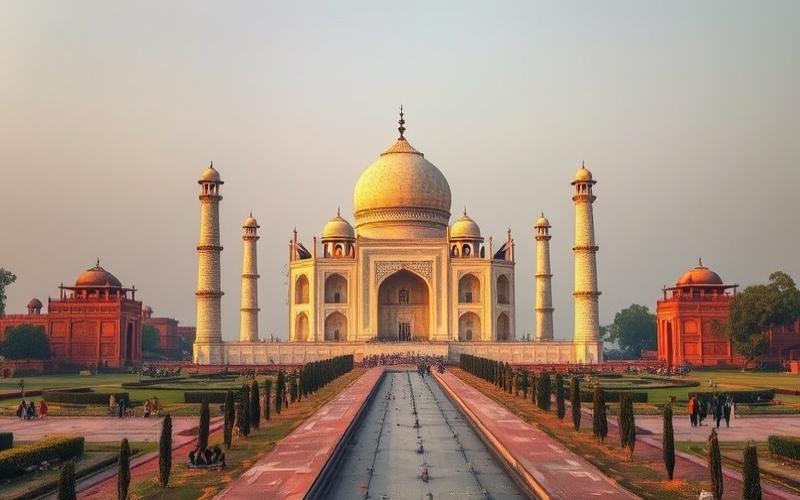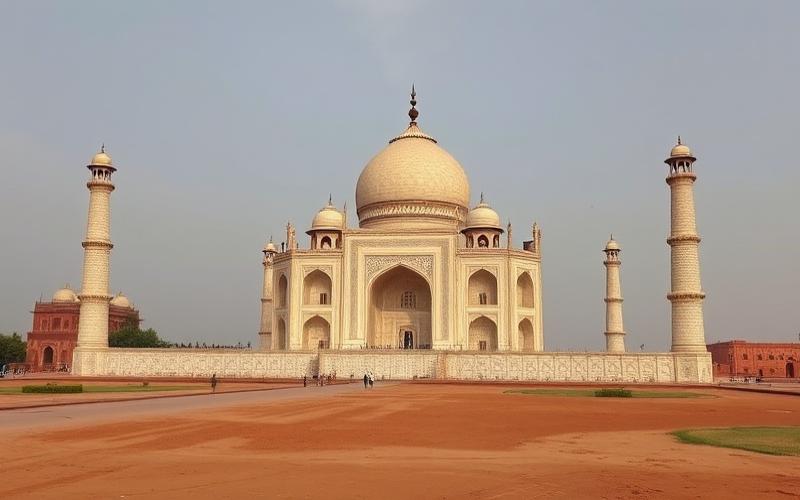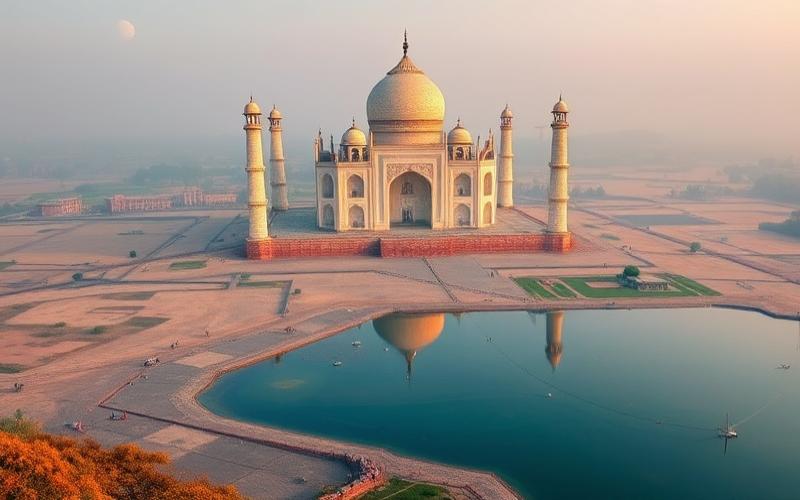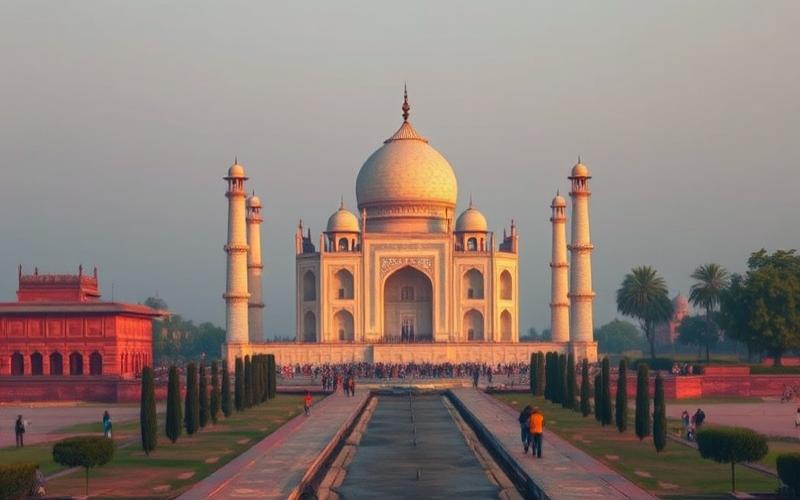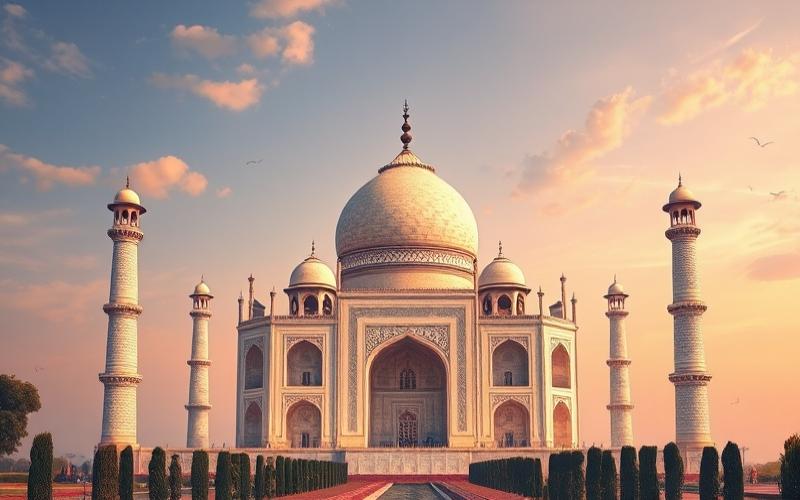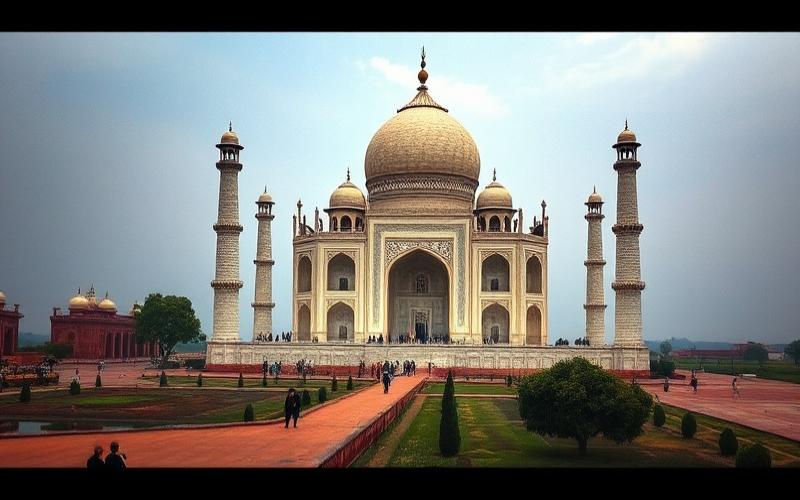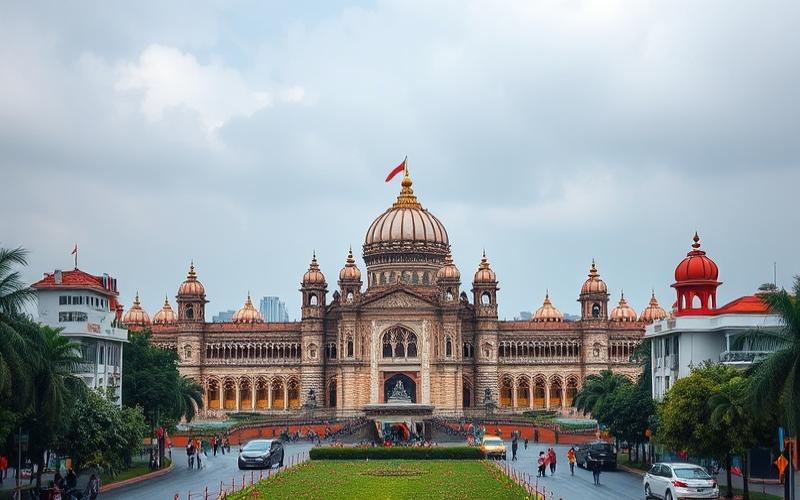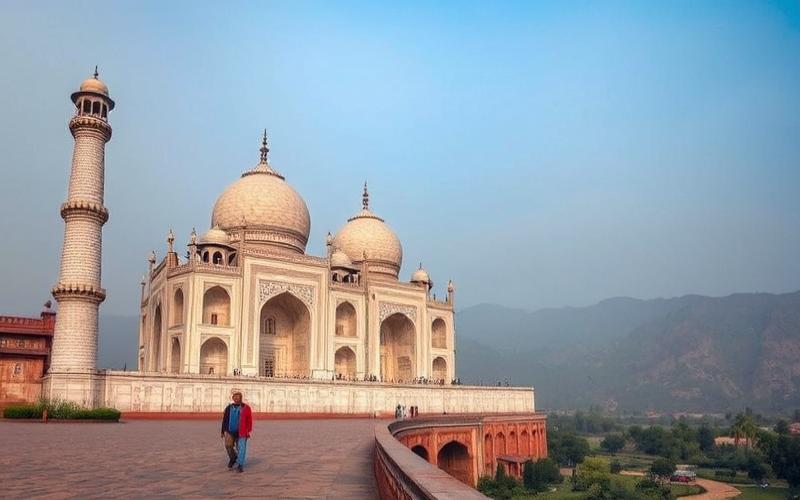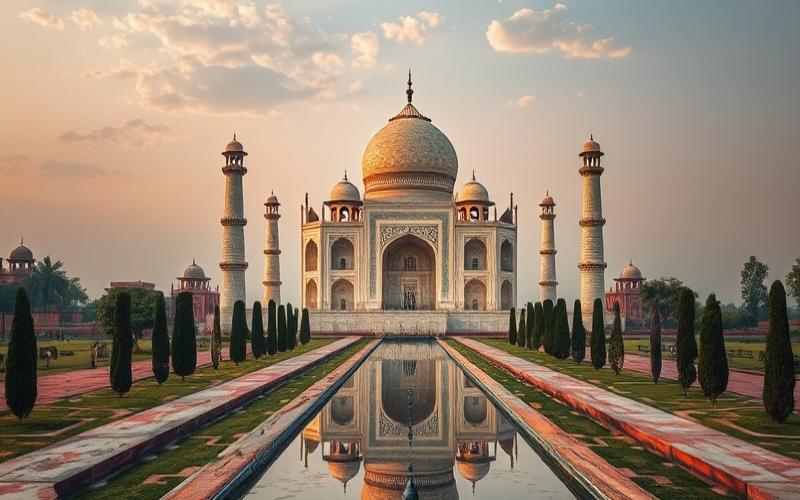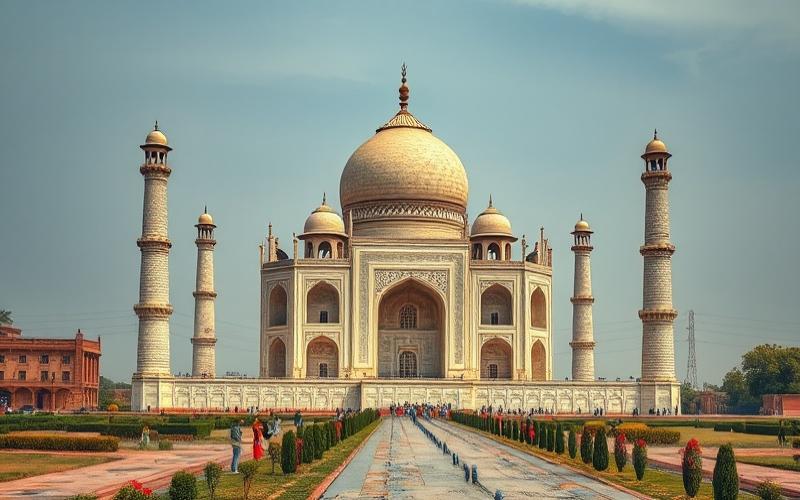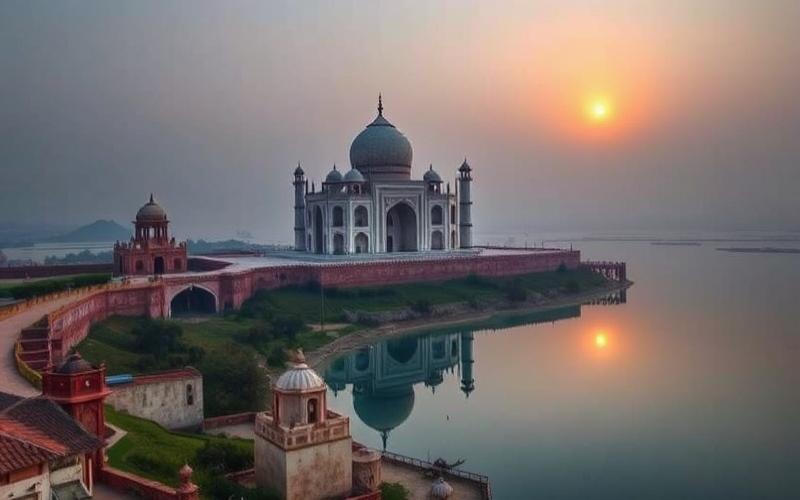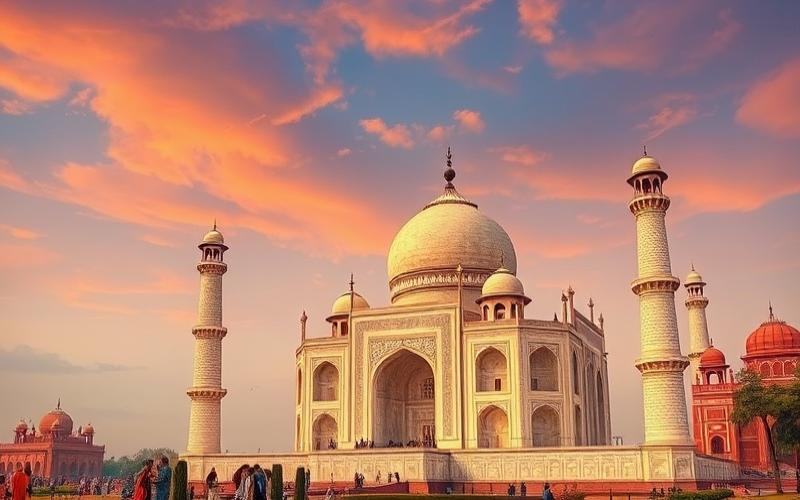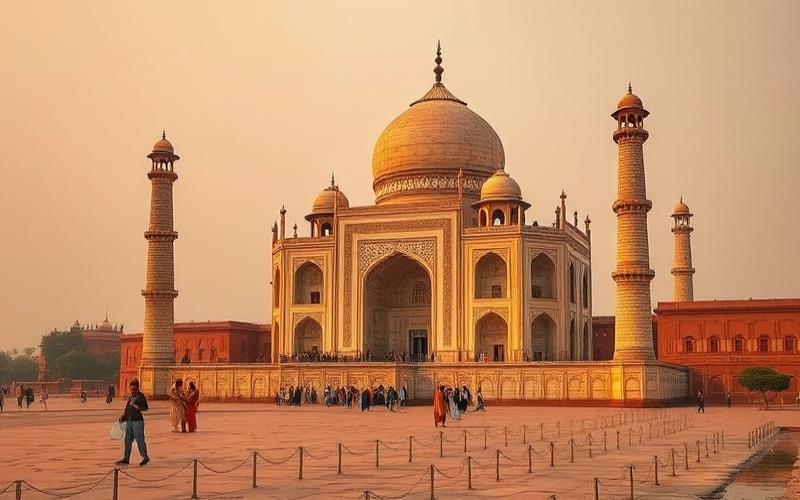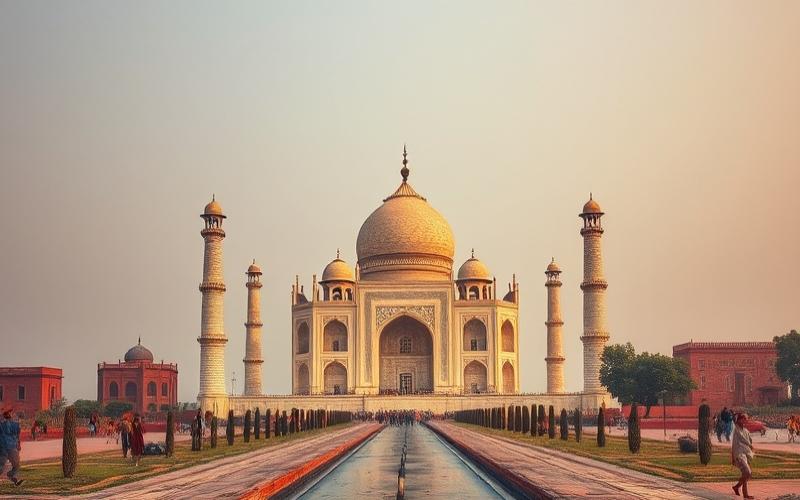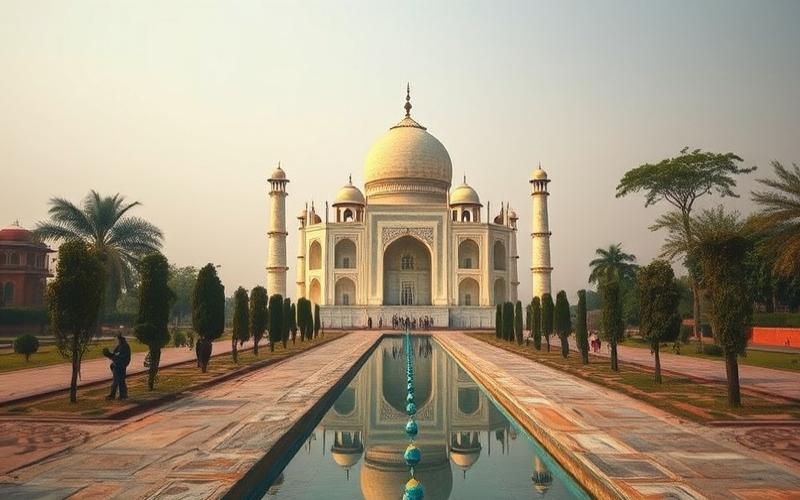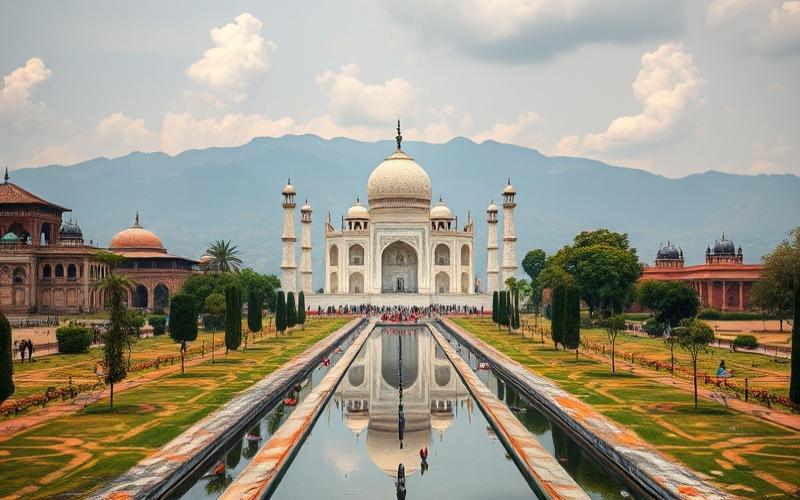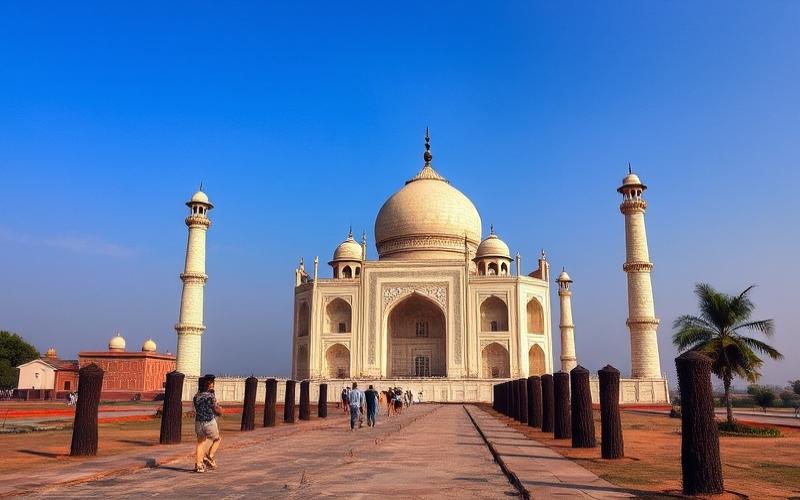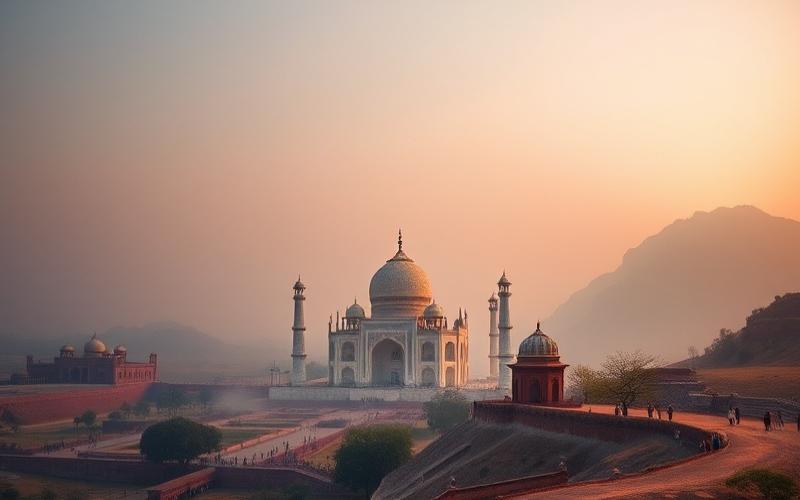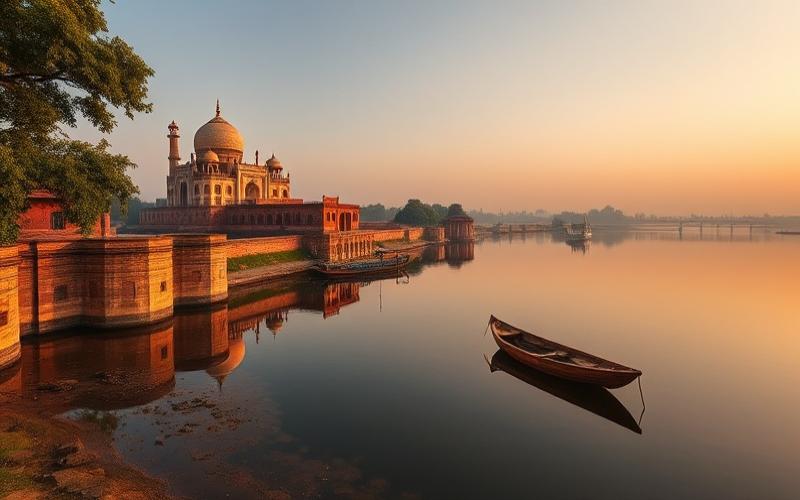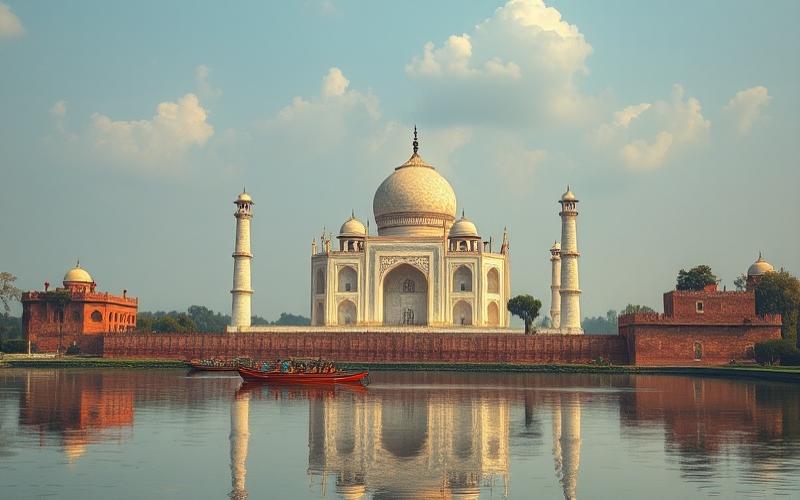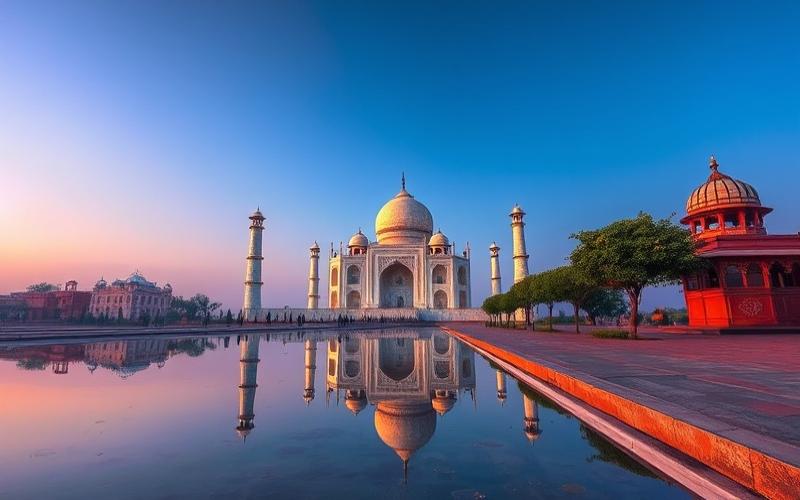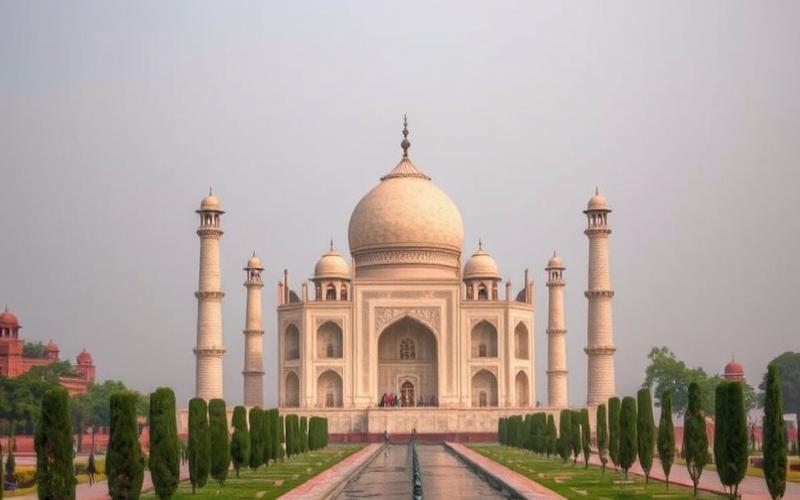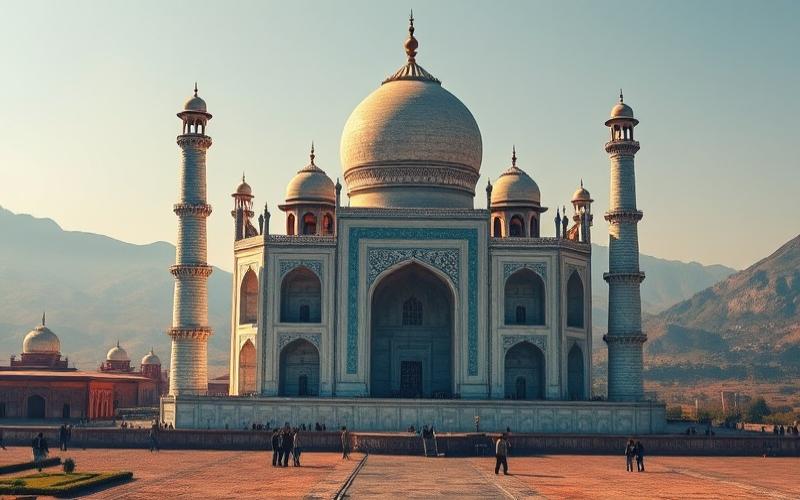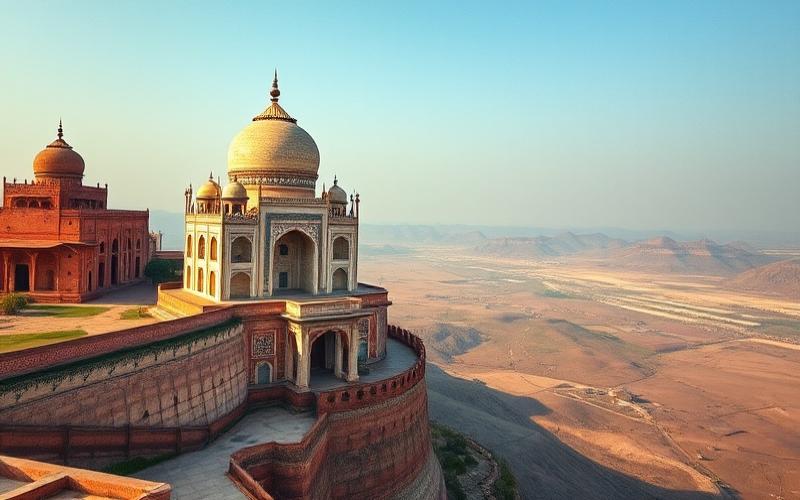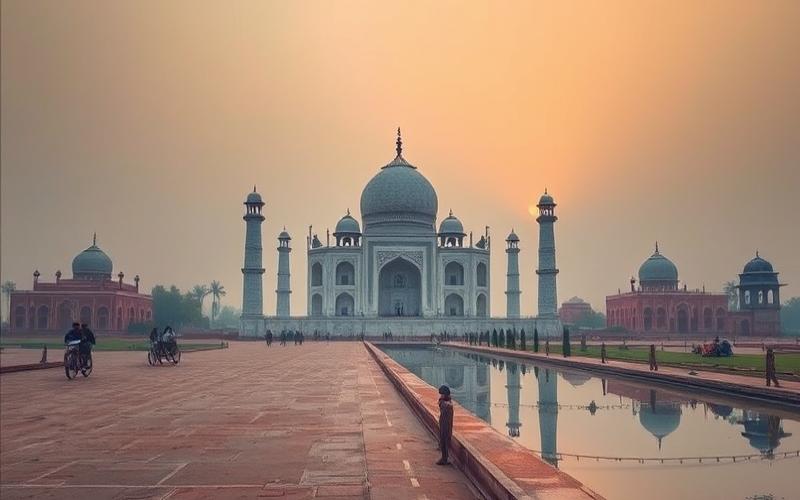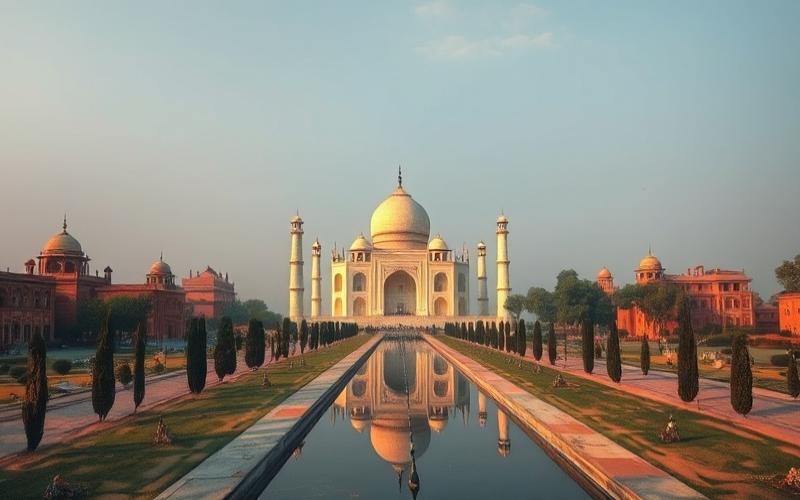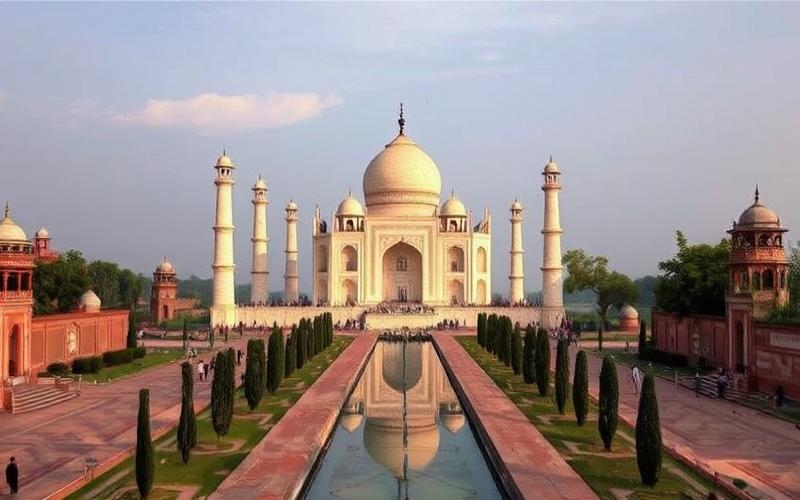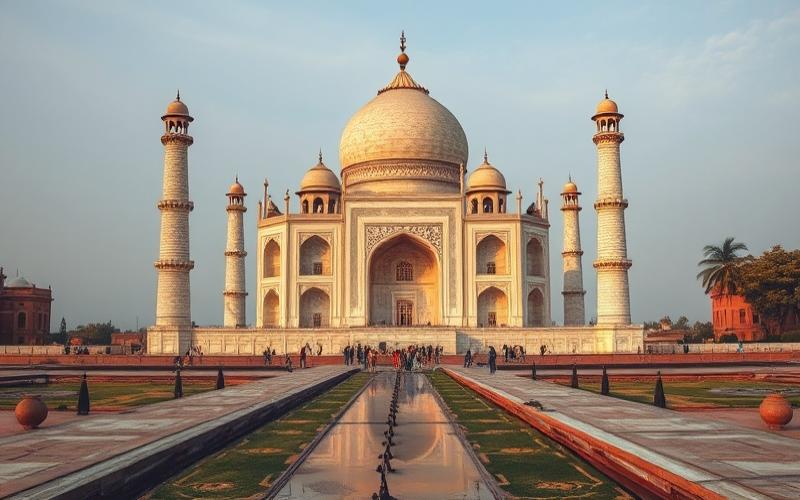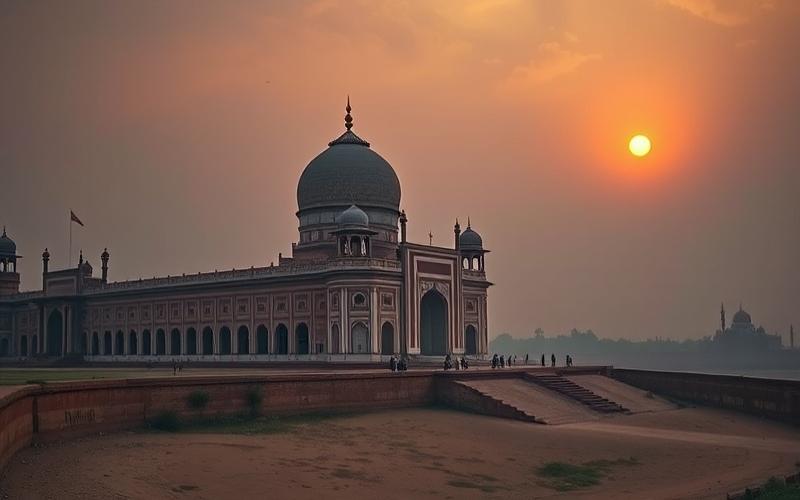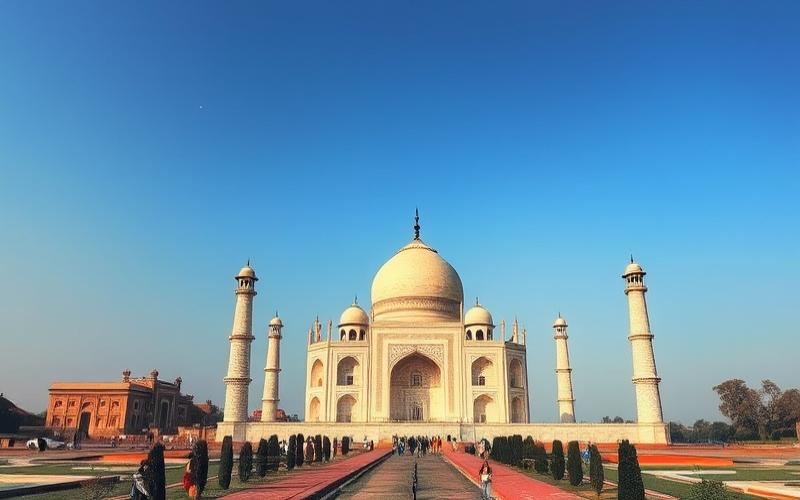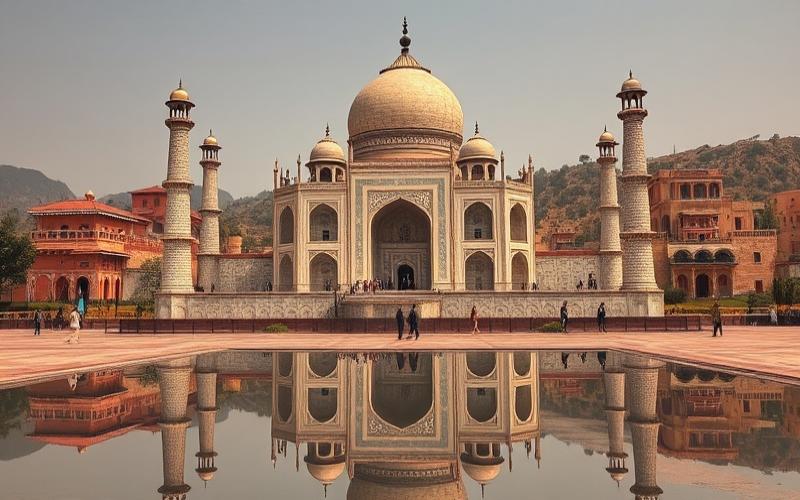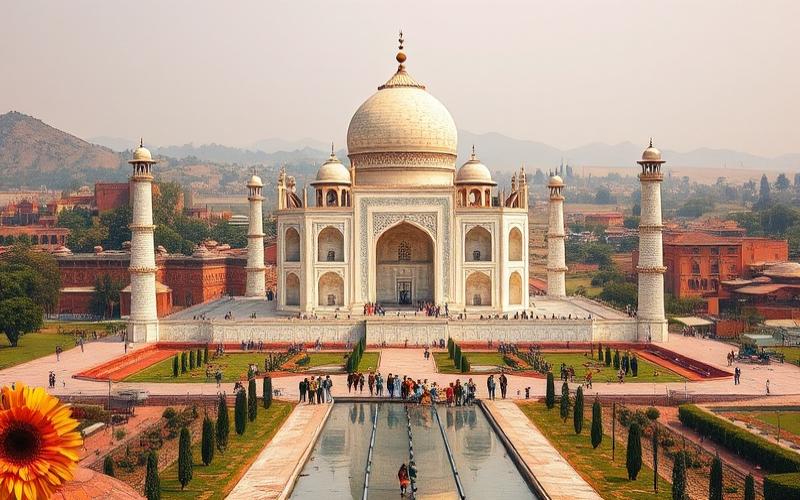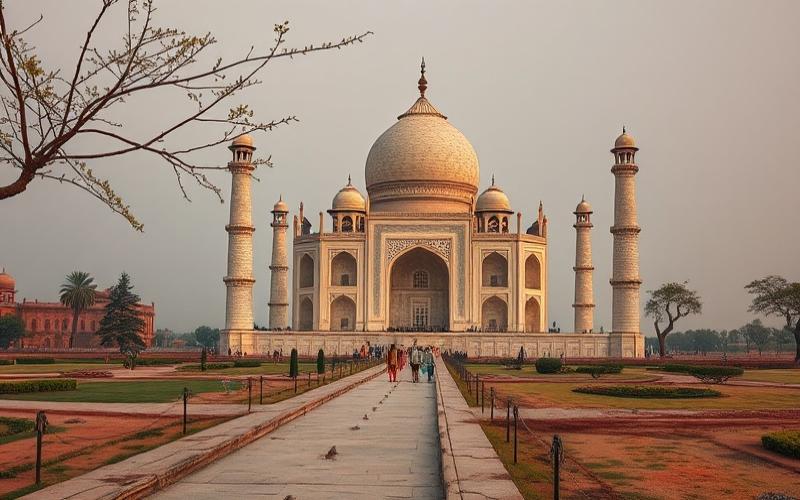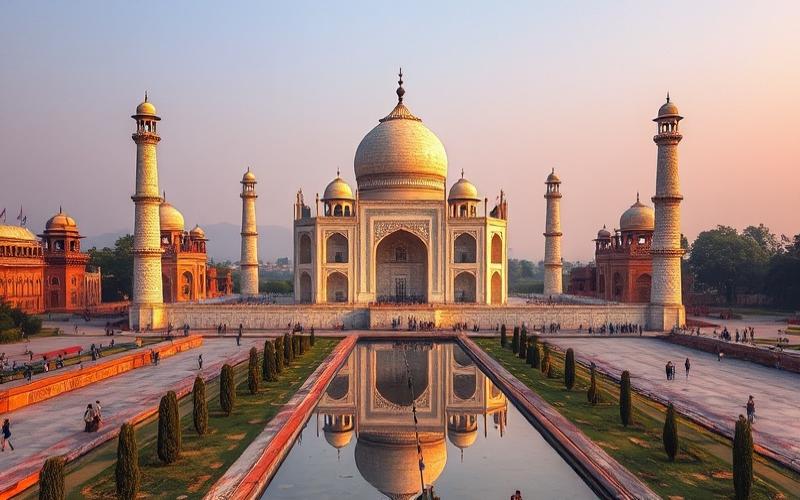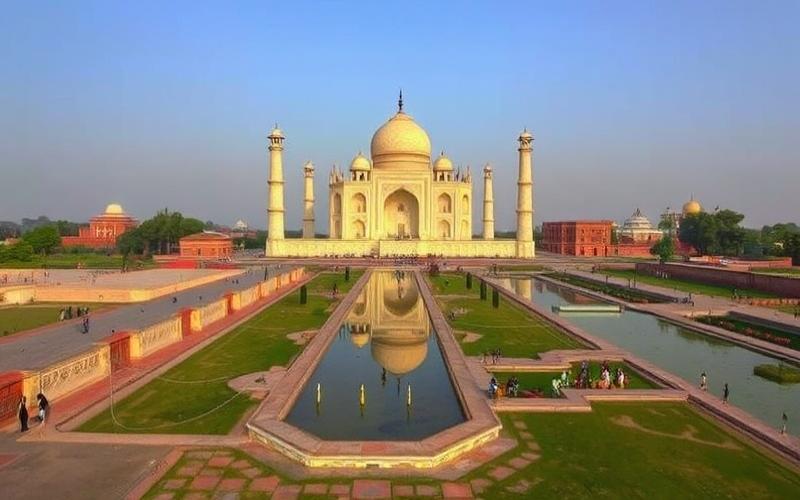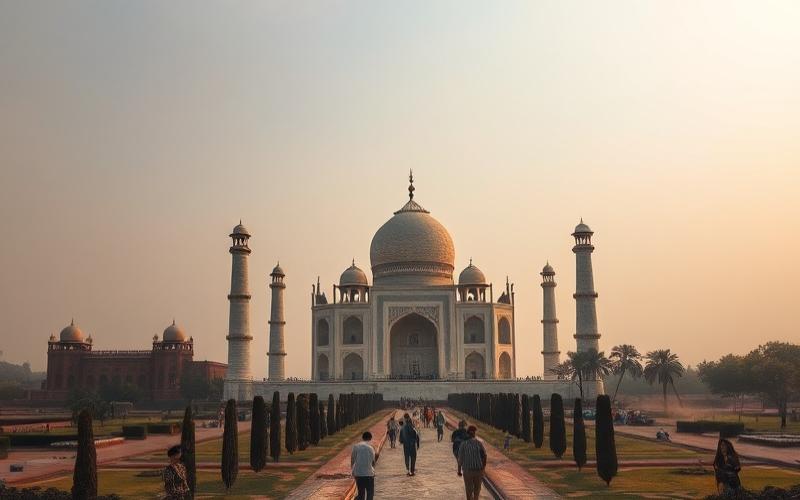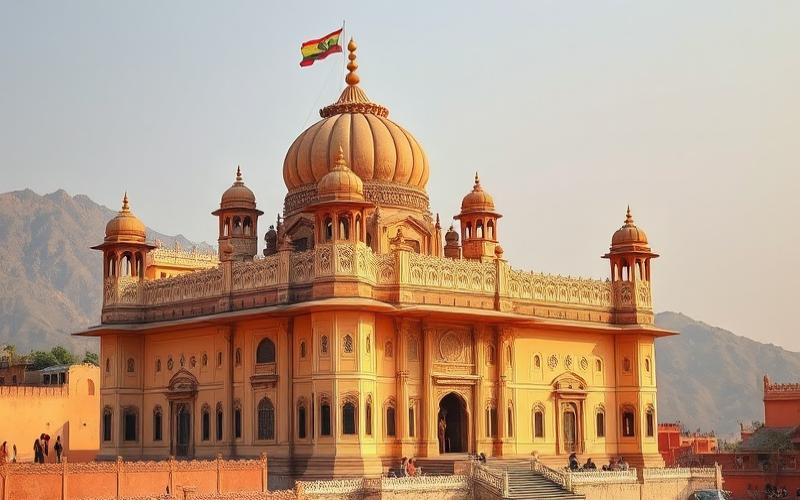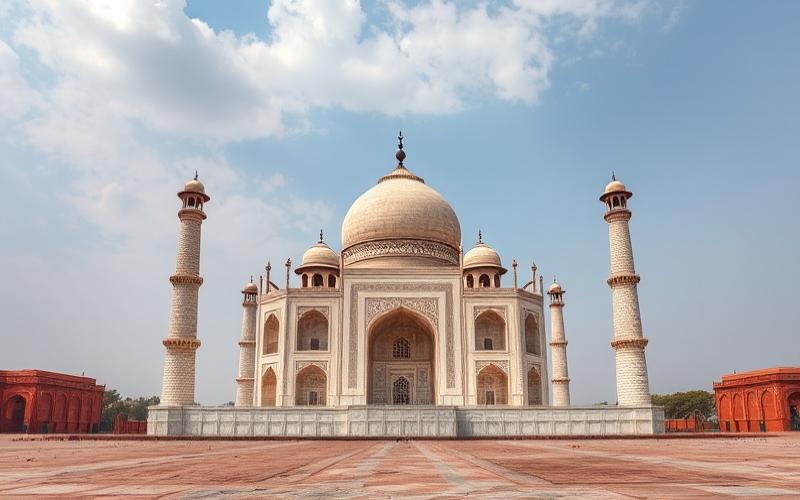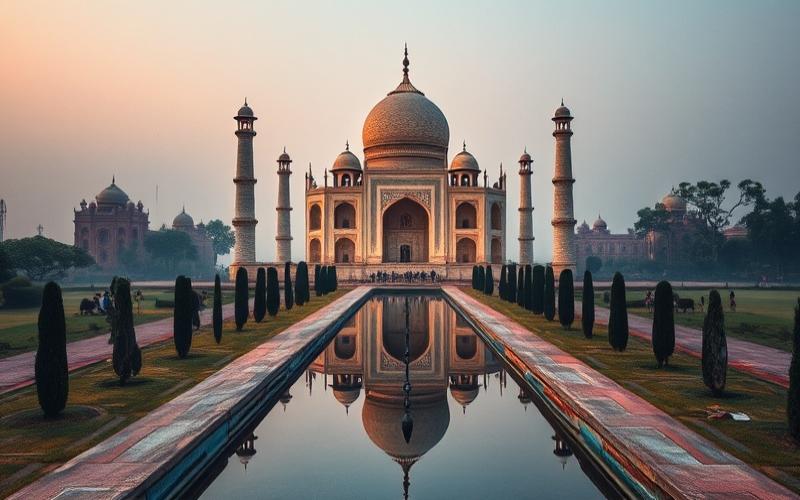
 Published on and written by Cyril Jarnias
Published on and written by Cyril Jarnias
Diving into the world of marriage formalities in India means discovering a mosaic of traditions and complex regulations that reflect the country’s cultural richness.
For those dreaming of celebrating their union in this enchanting country, it’s essential to understand the key steps to formalize a marriage.
Whether it’s a religious or civil marriage, each stage requires careful attention, from gathering the necessary documents to understanding local laws.
With significant regional variations, the journey may seem challenging, but it also offers a unique opportunity to immerse oneself in Indian values and customs.
Detailed Administrative Procedures for Getting Married in India
Civil Marriage (Special Marriage Act, 1954)
Civil marriage in India allows the union of people from different religions or those seeking a secular legal framework.
Procedure:
- Submission of an application to the Marriage Registrar (civil registry office) of the district where at least one of the future spouses resides.
- Publication of banns (called “Notice of Intended Marriage”) displayed publicly for 30 days.
- If there are no objections, the marriage can be celebrated after this period.
- Mandatory presence of three adult witnesses during the ceremony.
- Issuance of an official marriage certificate.
Required Documents:
| Document | Details/Comments |
|---|---|
| Proof of identity | Passport, national ID card, visa |
| Birth certificate | With translation and apostille if necessary |
| Proof of residence | Utility bill, lease, official certificate |
| Certificate of marital status | Sworn affidavit before a notary (in India) |
| ID photos | Generally 4 to 6 recent photos |
| Divorce/death (if applicable) | Divorce decree or death certificate |
Fees: Vary by state, generally between 100 and 1,000 INR.
Location: Marriage Registrar office of the concerned district.
Regional specificities: Some states may require additional documents or local formalities.
Religious Marriage (Hindu, Muslim, Christian, etc.)
Each community follows its own procedure, but marriages must be registered to have legal validity.
Examples:
- Hindu marriage (Hindu Marriage Act, 1955): Ceremony according to rites, then optional but highly recommended registration.
- Muslim marriage: Nikah before an officiant (Qazi) and two witnesses, then possible registration with local authorities.
- Christian marriage (Indian Christian Marriage Act, 1872): Celebration before a priest, publication of banns in church, then registration.
Required Documents (common to most religious marriages):
- ID documents and photos
- Birth certificate
- Certificate of marital status (affidavit)
- Witnesses (generally 2 to 3)
- Conversion certificate if applicable
Religious Procedure:
- Ritual ceremonies and signing of marriage register before officiant and witnesses.
- Civil registration recommended for legal recognition.
Fees: Often minimal for religious ceremony; separate registration fees (similar to civil marriage).
Location: Temple, mosque, church or other place of worship, then registration office for legalization.
Summary of Main Administrative Steps
- Document preparation: Gather all documents, translate and apostille if needed.
- Publication of banns (mainly for civil and Christian marriage): Public display for 10 to 30 days depending on marriage type.
- Possible hearing: Sometimes requested by authorities to verify consent.
- Marriage celebration: According to chosen rite (civil or religious), in presence of witnesses and officiant.
- Registration and certificate issuance: Signing of register and delivery of official marriage certificate.
Special Points
- Legal age is 21 for men and 18 for women.
- Marriages not conforming to local laws may not be recognized.
- International recognition sometimes requires marriage transcription at the consulate or embassy of one spouse’s home country.
Witness and Officiant Requirements
- Civil marriage: 3 adult witnesses mandatory, public officiant (registrar).
- Hindu marriage: Minimum 2 witnesses, Hindu priest.
- Muslim marriage: 2 adult witnesses, Qazi.
- Christian marriage: 2 witnesses, priest or pastor.
Example Summary Table of Procedures
| Marriage Type | Main Documents | Banns | Timeline | Fees | Location | Witnesses | Officiant |
|---|---|---|---|---|---|---|---|
| Civil | Identity, birth, marital status, photos | Yes | 30 days | 100-1,000 ₹ | Registrar | 3 | Civil officer |
| Hindu | Identity, birth, photos | No* | Variable | Nominal | Temple | 2 | Hindu priest |
| Muslim | Identity, birth, photos | No* | Immediate | Nominal | Mosque | 2 | Qazi |
| Christian | Identity, birth, marital status, photos | Yes | 10-30 days | Nominal | Church | 2 | Priest/Pastor |
*Civil registration is highly recommended for legal recognition.
Good to know:
In India, marriage procedures vary depending on the type of marriage, civil or traditional, each potentially requiring registration with a registration office. For a civil marriage under the Special Marriage Act, future spouses must provide proof of identity, birth certificates and certificates of marital status, then wait for a 30-day period after banns publication. This process requires the presence of three witnesses on registration day. Nominal registration fees apply. For traditional marriage, documents may also include religion or caste certificates, and some rituals require specific witnesses, particularly in Hindu or Muslim communities. Procedures can be completed in different locations according to regional needs, such as a temple or mosque for religious ceremonies. Regional specificities may include additional steps, for example, in Maharashtra, a religious marriage often requires civil registration to be legally recognized.
List of Documents Needed for Marriage in India
Documents typically required for marriage in India:
- Birth certificates of each partner (originals and sometimes legalized or apostilled copies as needed).
- Proof of identity: passports (originals and copies), national ID cards, driver’s licenses accepted as supplementary proof.
- Proof of current residence: utility bills, driver’s license, rental lease or residence certificate.
- Affidavit of marital status (or certificate of marital status) for each partner, confirming they are not already married. This document must be recent (generally less than 90 days before application date).
- Passport-size photographs: typically 4 recent identical photos for each partner.
- Proof of dissolution of previous marriage: final divorce decree or death certificate of former spouse, if applicable.
- Specific forms:
- Marriage application form (often called “Notice of Intended Marriage”).
- Declaration (“Declaration by Prospective Bride and Groom”), generally in duplicate.
- Affidavit specific to region or religious community, if required.
- Witness presence: ID copies and sometimes addresses of 2 to 3 adult witnesses.
Case of Marriage Involving a Foreign Partner:
- Specific visa: an Entry Visa is required for the foreign partner. A tourist visa is not accepted for marriage registration.
- Affidavit of marital status or non-objection certificate to marry an Indian, duly apostilled or legalized by embassy/consulate and translated into English if necessary.
- Publication of notice: sometimes required in the foreign partner’s home country and at their usual residence in India.
- Registration timeline: complete file must generally be submitted at least 15 days before planned celebration date. Processing times may vary from 4 to 8 weeks depending on region and partners’ nationality.
Variations According to Applicable Marriage Law:
| Marriage Law | Main Documents and Specifics | Timelines and Specific Formalities |
|---|---|---|
| Special Marriage Act | Birth certificates, proof of identity, affidavit of marital status, proof of residence, 30-day public notice | Mandatory 30-day notice |
| Hindu Marriage Law | Birth certificates, proof of identity, proof of residence, affidavit of marital status, photographs | Generally fewer formalities |
| Muslim Marriage Law | Proof of identity, certificate of marital status, proof of residence, marriage contract (Nikah Nama), Muslim witnesses | Often handled by religious authority |
| Christian Marriage Law | Birth certificates, affidavit of marital status, proof of identity, publication of banns, baptism certificate (often required) | Publication of banns, variable timelines |
Important Notes:
- Some states or cities may require additional forms or declarations (e.g., specific residence certificate, regional notification form).
- Foreign documents must often be apostilled or legalized by the consulate or foreign ministry of home country.
- Physical presence of each partner and witnesses is mandatory during registration ceremony.
- PACS or any civil union other than marriage is not recognized in India for visa purposes or marriage registration.
Typical Submission and Registration Timeline:
- File submission: 15 to 30 days before planned marriage date.
- Processing time: 4 to 8 weeks after complete file submission.
Good to know:
To get married in India, future spouses must generally provide their birth certificates, proof of identity such as passports and proof of current residence. An affidavit of marital status is often required to attest to marital status, along with passport-size photographs. If one or both partners were previously married, proof of divorce or death certificate of former spouse is necessary. Some regions might require specific forms or declarations depending on applicable marriage laws, such as Hindu, Muslim, Christian laws or the Special Marriage Act. If a partner is foreign, obtaining an appropriate visa may be required. Registration and document submission timelines vary, so it’s advisable to check with the competent local authority to avoid delays.
For mixed marriages, prior obtaining of an entry visa and production of an affidavit of marital status, duly legalized, are essential. Failure to comply with banns publication or legal notice may result in marriage registration refusal.
Specifics for Expatriates Wishing to Marry in India
For an expatriate to marry in India, they must comply with a set of specific legal and administrative formalities, which vary according to marriage context (civil, religious, mixed, etc.) and concerned region.
Main Legal and Administrative Requirements:
- Civil marriage between an expatriate and an Indian citizen generally falls under the Special Marriage Act, 1954.
- One of the future spouses must have resided at least 30 days in the district where marriage will be celebrated.
- Both future spouses must be of legal age (legal age: 21 for all).
- Both must be single, divorced or widowed, and of sound mind.
Required Documents:
| Document | Details/Comments |
|---|---|
| Passport and visa | Originals and copies |
| Birth certificate | Translated to English and apostilled |
| Certificate of marital status | Doesn’t exist in India: provide sworn declaration or certificate issued by consulate |
| Proof of dissolution of previous marriage (if applicable) | Divorce decree or death certificate, translated and apostilled |
| Certificate of custom | Issued by expatriate’s consular authorities |
| Proof of residence | Proof of 30-day residence in India |
| ID photos | Generally 4 to 8, passport size |
Document Validity Verification:
- All foreign documents must be translated into English (or sometimes Hindi depending on state) and apostilled or legalized.
- Compliance (format, color, number of pages, type of legalization) must be verified for each document.
- The embassy or consulate of expatriate’s home country often issues a certificate of capacity to marry after file review, hearing and banns publication.
Timelines and Banns Publication:
- Mandatory banns publication: 30 days display at Indian marriage office (Special Marriage Act).
- For French nationals, banns publication must also be done at French embassy or consulate, with minimum legal period of 10 days.
- Marriage can be celebrated after expiration of these periods, in presence of three adult witnesses.
Celebration Conditions by Civil Registration Officer:
- Officer verifies document compliance and residence.
- Ensures capacity and consent conditions are met.
- Marriage can be celebrated between Indian citizen and foreigner if all requirements are met.
Variations According to Religions and Indian States:
| Legislation/Rite | Specifics |
|---|---|
| Special Marriage Act | Civil marriage, open to all religions, 30-day banns publication |
| Hindu Marriage Act | For Hindus, Jains, Sikhs and Buddhists |
| Muslim Personal Law | For Muslims; specific requirements and procedures |
| Christian Law | For Christians; conditions vary by state |
| State Legislation | Some states may require additional documents or procedures (language, formalities) |
Possible Obstacles and Solutions:
- Language variations: Certified translation of documents, use of interpreter during procedures.
- Cultural differences: Research local customs, prepare witnesses and inform about rituals or formalities specific to community.
- Administrative delays: Anticipate and submit files several weeks in advance (some consulates require contact at least two months before planned date).
- Missing or non-compliant documents: Check exact list of required documents with consulate or embassy, request templates or samples.
Resources and Support:
- Embassies and consulates: Main contact point to obtain document lists, forms, certificate of capacity to marry and personalized advice.
- Specialized services (civil registration, lawyers, expatriation agencies): Assistance with translation, apostille, file preparation.
- Official embassy websites: Updated information, procedures, downloadable forms, contact details of competent services.
To guarantee marriage validity internationally, it’s imperative to complete all consular procedures and strictly respect local timelines and requirements.
Good to know:
Expatriates wishing to marry in India must comply with specific formalities including presentation of documents such as certificates of marital status and proof of divorce, validated by local Indian authorities. It’s essential to verify the validity of these documents, sometimes requiring certified translation into a language recognized by local authorities. Cultural and language variations, among others, can be overcome by seeking help from interpreters or specialized marriage consultants. Regarding administrative procedures, banns publication must be respected, generally for 30 days, before a marriage can be celebrated by a civil registration officer. India, having different marriage laws according to religions and states, often requires additional procedures for mixed marriages between foreign citizens and Indians. Embassies and local immigration services can offer practical advice and remain valuable resources for expatriates facing these challenges.
Disclaimer: The information provided on this website is for informational purposes only and does not constitute financial, legal, or professional advice. We encourage you to consult qualified experts before making any investment, real estate, or expatriation decisions. Although we strive to maintain up-to-date and accurate information, we do not guarantee the completeness, accuracy, or timeliness of the proposed content. As investment and expatriation involve risks, we disclaim any liability for potential losses or damages arising from the use of this site. Your use of this site confirms your acceptance of these terms and your understanding of the associated risks.

